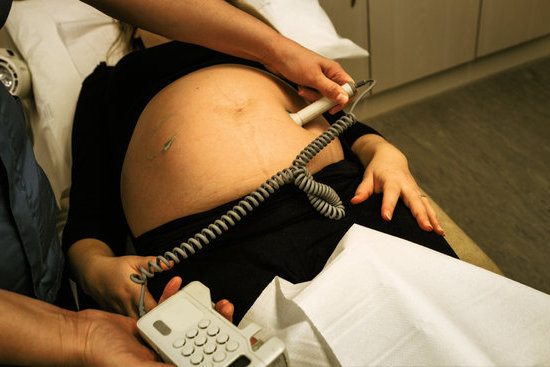Have you found yourself asking, “Why am I showing so early in my first pregnancy?” The mix of excitement and confusion that comes with noticing a baby bump earlier than expected is a common experience for many expectant mothers. The anticipation of pregnancy can be overwhelming, especially when physical changes start becoming visible sooner than imagined.
Understanding the early signs and symptoms of pregnancy is essential to comprehend why some women show earlier than others. From hormonal changes to genetic factors, various aspects contribute to the timing of showing during pregnancy. This article delves into the reasons behind showing early in a first pregnancy, shedding light on the complexities of the human body’s preparation for this miraculous journey.
As hormonal fluctuations and bodily adjustments take place in early pregnancy, it’s no wonder that some women begin showing earlier than anticipated. The way our bodies adapt and change to accommodate a growing baby varies from person to person, leading to differences in when a bump becomes noticeable.
Genetic predispositions also play a significant role in determining how quickly a woman begins to show during her first pregnancy. By exploring these factors, we can gain a better understanding of why this phenomenon occurs and how to embrace it with positivity and grace.
Understanding Early Pregnancy Symptoms
During the early stages of pregnancy, women may experience a variety of physical changes that can contribute to showing earlier than expected. One of the primary reasons for this is the hormonal fluctuations that occur in the body.
The surge in hormones, such as estrogen and progesterone, can cause bloating and water retention, making the abdomen appear fuller and more rounded. Additionally, the expanding uterus and increased blood flow to the pelvic region can also lead to a visible baby bump sooner than anticipated.
Hormonal Impact on Body Changes
The hormonal changes during early pregnancy not only affect a woman’s emotional state but also play a vital role in preparing her body for carrying a baby. These hormones can relax the muscles in the digestive tract, leading to slower digestion and increased gas production – factors that contribute to bloating and a protruding belly. As a result, women may find themselves showing earlier than they had anticipated.
Body Preparations for Pregnancy
Moreover, as the body begins to prepare for pregnancy, it undergoes various physical transformations that can impact when a woman starts showing. The uterus starts to expand rapidly to accommodate the growing baby, pushing other organs aside and causing noticeable changes in the abdominal area.
This process, combined with hormonal influences and genetic factors, can result in an early appearance of a baby bump. So if you are wondering “why am I showing so early in my first pregnancy,” remember that these physiological changes are all part of the incredible journey of bringing new life into the world.
Hormonal Changes
During the early stages of pregnancy, hormonal changes play a significant role in the development of a baby bump. One key hormone that contributes to this phenomenon is progesterone. Progesterone levels rise rapidly in early pregnancy to support the growth of the placenta and maintain a healthy environment for the developing fetus.
This hormone can cause bloating and water retention, leading to a swollen abdomen which may contribute to an earlier appearance of a baby bump. Additionally, progesterone relaxes the muscles in the uterus to accommodate the growing baby, further accentuating the bump.
In addition to progesterone, another hormone that influences the size of a baby bump is relaxin. Relaxin is responsible for loosening ligaments in the pelvis to allow for easier delivery during childbirth. However, this hormone can also affect other parts of the body, including abdominal muscles.
As these muscles stretch and soften under the influence of relaxin, it can contribute to an earlier and more noticeable baby bump in first-time pregnancies. These hormonal fluctuations are completely normal and essential for supporting a healthy pregnancy, even if they may result in showing earlier than expected.
It’s important for expectant mothers experiencing early showing to understand that each pregnancy is unique, and factors like hormonal variations can lead to differences in belly size among women. Rather than comparing oneself to others or feeling concerned about showing early, it’s crucial to focus on maintaining good physical and emotional health throughout pregnancy.
If there are any concerns about rapid growth or unusual symptoms accompanying early showing, consulting with a healthcare provider can provide reassurance and guidance on how best to support a healthy pregnancy journey.
| Hormonal Changes Impacting Baby Bump Appearance | Key Points |
|---|---|
| Progesterone Levels | Rise rapidly in early pregnancy causing bloating and water retention |
| Relaxin Hormone | Loosens ligaments including abdominal muscles contributing to visible bump |
Body Changes
During the early stages of pregnancy, a woman’s body undergoes several changes in preparation for nurturing and carrying a growing fetus. These changes can vary from person to person but are often responsible for the noticeable baby bump that some women experience sooner rather than later. Here are some ways in which the body prepares for pregnancy and why you may be showing so early in your first pregnancy:
- Uterus Expansion: One of the earliest signs of pregnancy is the rapid growth and expansion of the uterus to accommodate the developing baby. As the uterus expands, it pushes other organs out of the way, causing the abdomen to protrude and creating a visible bump.
- Hormonal Shifts: Hormonal changes play a significant role in preparing the body for pregnancy. Increased levels of progesterone and estrogen relax the muscles and ligaments in the pelvis to make room for the baby, which can contribute to an earlier appearance of a baby bump.
- Water Retention: In early pregnancy, many women experience bloating due to water retention caused by hormonal fluctuations. This bloating can make the abdomen appear larger than usual, leading to an early onset of showing.
Additionally, factors such as muscle tone, pre-pregnancy weight, and previous pregnancies can also influence when a woman starts showing during her first pregnancy. Women who have stronger abdominal muscles may carry their pregnancy differently compared to those with weaker muscles.
It is essential to remember that each woman’s body is unique, and there is no one-size-fits-all explanation for why some women show early while others do not. Embrace these changes as a natural part of your pregnancy journey and prioritize self-care throughout this transformative time.
Genetic Factors
One key genetic factor that can play a role in early pregnancy showing is a woman’s body type. Women with a naturally smaller frame or shorter torso may appear to show earlier simply because there is less space for the growing uterus to expand without becoming noticeable. Additionally, some women may inherit genes that result in more pronounced abdominal muscles or less fat distribution around the abdomen, causing the baby bump to be more prominent sooner.
Research has also suggested that genetics may influence how a woman carries her pregnancy weight. Some women may be predisposed to gaining weight predominantly in their abdominal area during pregnancy, leading to an earlier appearance of a baby bump. Conversely, others may distribute weight more evenly throughout their bodies, delaying the visibility of a bump. Ultimately, genetic factors interact with hormonal changes and individual body characteristics to determine when a woman starts showing during her first pregnancy.
| Genetic Factors | Role in Timing of Showing During Pregnancy |
|---|---|
| Body Type | Influence on when baby bump becomes visible |
| Pregnancy Weight Distribution | Impact on timing of showing during first pregnancy |
Bloating vs Baby Bump
During the early stages of pregnancy, it can be difficult for women to determine whether the changes in their body are due to bloating or a true baby bump. Bloating is a common symptom in early pregnancy caused by hormonal changes that lead to water retention and gas accumulation. Women may experience abdominal distention, tightness, and discomfort, which can mimic the appearance of a baby bump.
This can leave expecting mothers wondering, “Why am I showing so early in my first pregnancy? “.
Understanding Bloating
Bloating occurs as a result of increased progesterone levels during pregnancy, which causes relaxation of the smooth muscles in the gastrointestinal tract leading to slower digestion. This can result in gas accumulation and constipation, contributing to abdominal distention. Additionally, the expanding uterus putting pressure on the digestive organs can exacerbate bloating symptoms. It’s important for pregnant women to stay hydrated, eat fiber-rich foods, and engage in light physical activity to help alleviate bloating.
Recognizing a Baby Bump
A true baby bump typically starts to show around 12-16 weeks into pregnancy for first-time mothers. As the fetus grows and the uterus expands, the abdomen gradually protrudes outward, forming a distinct rounded shape. Unlike bloating, which may fluctuate throughout the day or week, a baby bump tends to become more prominent and steady as pregnancy progresses.
Factors such as height, weight, muscle tone, and individual body shape can also influence when a woman starts showing during her first pregnancy. It’s essential for women to embrace their changing bodies and be patient as they await the arrival of their little one.
Nutrition and Weight Gain
During pregnancy, proper nutrition is essential not only for the health of the mother but also for the development of the growing baby. Many women may wonder: “Why am I showing so early in my first pregnancy?” Well, one factor that can contribute to an early baby bump is weight gain.
When a woman gains more weight than recommended during the first trimester, it can lead to a noticeable bump earlier on in the pregnancy. To ensure a healthy and gradual weight gain, it is crucial to follow a balanced diet that provides all the necessary nutrients for both mother and baby.
Here are some key points to consider when addressing the importance of healthy eating habits and weight gain during pregnancy:
- Focus on nutrient-dense foods: Opt for a variety of fruits, vegetables, whole grains, lean proteins, and dairy products to meet your nutritional needs.
- Avoid empty calories: Limit your intake of sugary snacks, processed foods, and beverages high in added sugars as they provide little nutritional value.
- Stay hydrated: Drink plenty of water throughout the day to support overall health and maintain proper hydration levels.
In addition to nutrition, maintaining a healthy weight gain during pregnancy can impact when a woman starts showing. While some women may show earlier than others due to various factors like genetics or hormonal changes, controlling weight gain within recommended limits can help manage how soon a baby bump becomes noticeable.
By working closely with healthcare providers and following their guidance on appropriate weight gain goals for each trimester, women can promote a healthier pregnancy journey and potentially delay the onset of showing early in their first pregnancy.
Emotional Impact
As a first-time mom-to-be, the sight of your growing belly can be both thrilling and bewildering. The question “Why am I showing so early in my first pregnancy?” may have crossed your mind numerous times, accompanied by a mix of excitement and confusion. Understanding the reasons behind this early display of your baby bump can provide insight into the miraculous journey your body is embarking on.
One significant factor contributing to showing early in a first pregnancy is the array of early pregnancy symptoms that many women experience. From hormonal changes to physical alterations, these symptoms pave the way for your body to adapt to the new life growing within you. Hormonal fluctuations, in particular, play a crucial role in shaping your baby bump earlier than expected, signaling the rapid transformations taking place inside.
Additionally, genetic factors can also influence when a woman starts showing during pregnancy. Your unique genetic makeup can determine how your body responds to pregnancy and how quickly it begins showcasing the beautiful changes happening within. As you navigate through this emotional rollercoaster of an early baby bump, remember that each woman’s journey is unique and special. Embrace these changes with love and care, knowing that they are all part of the miraculous process of creating life.
Frequently Asked Questions
Is It Normal to Show Early in First Pregnancy?
It is not uncommon to show early in a first pregnancy, especially for women who are thin or have a smaller frame. Factors such as genetics, muscle tone, and the position of the uterus can also contribute to showing earlier than expected.
Why Is My Belly So Big at 6 Weeks Pregnant?
At 6 weeks pregnant, a woman’s belly may appear bigger due to bloating and hormonal changes causing an increase in gas production. However, what may seem like a larger belly is often attributed to factors other than the baby’s size at this early stage of pregnancy.
Why Do I Have a Bump So Early in Pregnancy?
The bump that some women experience early in pregnancy is usually not due to the baby itself but rather to hormones causing changes in the body such as bloating and increased blood flow. This can lead to a slight protrusion in the lower abdomen despite the baby still being too small to noticeably cause a bump.

Welcome to my fertility blog. This is a space where I will be sharing my experiences as I navigate through the world of fertility treatments, as well as provide information and resources about fertility and pregnancy.





